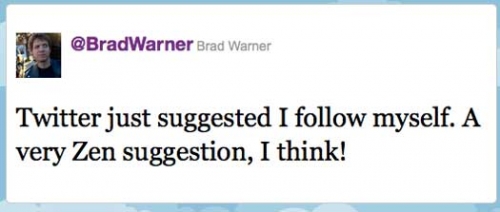Sweeping Zen recently posted a great interview with David Loy, a Buddhist philosopher and frequent Tricycle contributor, and among the topics discussed was the relationship between Buddhism and Psychology. We’ve found that this topic is surprisingly controversial, as reflected by the lengthy ongoing debate at “Human Nature, Buddha Nature,” an interview with psychologist John Welwood from our Spring 2011 issue. What does Loy have to say about the relationship, similarities, and potential benefits of a cross-fertilization of Buddhism and psychology? He explains:
Zazen, and Buddhist practice in general, helps us to become aware of the emptiness (shunyata) of all phenomena, including mental phenomena. We open up to the empty ground from which thoughts, memories, intentions and feelings arise. It is important, indeed necessary, to realize that thoughts, etc., are not the product of an ego-self but just the opposite: one’s sense of self is constructed by the ways that the thoughts themselves interact. The ego-self does not create thoughts, it’s a product of thought. The “mind stream” has a deeper origin. With meditation practice we become aware of this groundless ground. Awakening, kensho, is like the bottom falling out of a bucket. It’s realizing that thoughts, etc., arise from a much deeper place.
A common assumption, maybe the traditional assumption, is that just going back to that empty ground — becoming more aware “of” that shunya source from which all phenomena arise — is sufficient. Yet none of us live “there” only. Yes, all form is empty, but emptiness is always taking form. The sense of ego self needs to be reconstructed as well as deconstructed. The point is not to get rid of the self, because there never has been a self. Nor is it to get rid of all sense of self because that would result in mental disability — you could not function at all. Rather, the challenge is to realize the emptiness of that sense of self and reconstruct the self as a better vehicle for this deeper functioning.
That’s where psychotherapy can play an important role. Psychotherapy can help us understand important things about our habitual patterns and self-defeating mental tendencies, the mostly unconscious ways and places we are stuck.
Read the whole interview here.
In lighter news, on Wednesday Huffpost Religion posted the piece, 12 Buddhists On Twitter You Should Be Following and we were happy to see Tricycle sandwiched between our friends Jack Kornfield and Joan Halifax. But as for whose “featured tweet” was the best, we’ll give that honor to Brad Warner:

Earlier this week, Pema Choephel of the Northwest Tibetan Cultural Association forwarded us the following teaching by Jetsun Khandro Rinpoche. In it, she teaches about interpersonal dynamics and gives very sound advice regarding working within organizations and how to skillfully lead. We were particularly struck by her discussion of socializing, where she notes that in the West so many social gatherings are dominated by alcohol and food. She explains that it can be of great benefit for groups to spend time with each other “where there is just simplicity, the simplicity of knowing one another and becoming grounded in being human with one another.”
Thank you for subscribing to Tricycle! As a nonprofit, we depend on readers like you to keep Buddhist teachings and practices widely available.